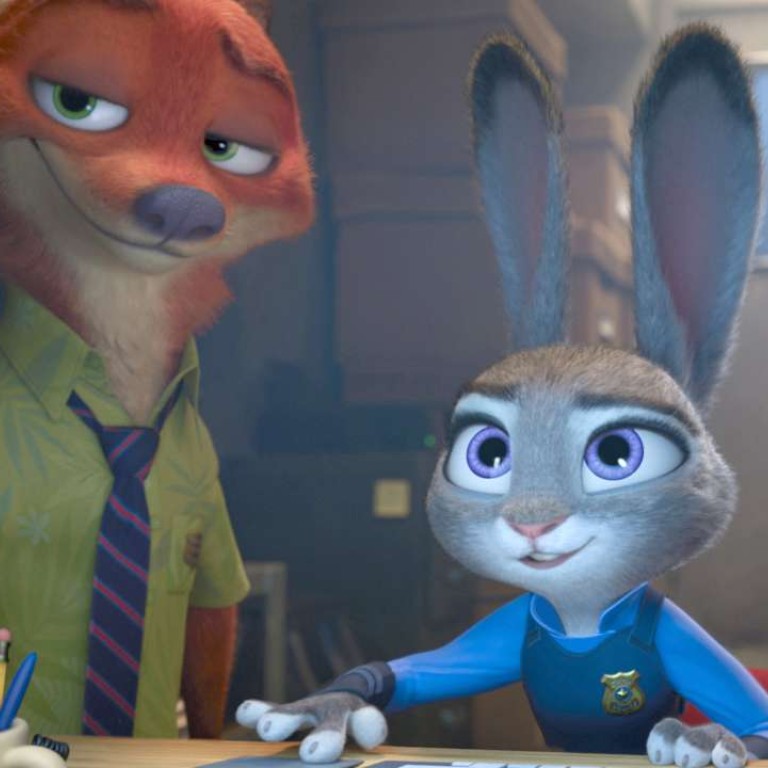
Zootopia and the limits of the Obama presidency
The characters in Disney’s latest animated film may be adorable animals, but its metaphor is refreshingly direct: Mayor Lionheart, like Barack Obama, was elected but his legitimacy is fragile
Nothing in the promotions for Zootopia suggested that Disney’s latest animated movie planned to tackle the policing and criminal justice issues that have become one of the most significant subjects in American politics. But since the film about a bunny, Judy Hopps (Ginnifer Goodwin), who dreams of becoming a police officer, arrived in cinemas (on March 4 in the United States and March 24 in Hong Kong), it’s made almost US$600 million internationally and sparked vigorous conversations, an impressive performance for an explicitly political movie.
Zootopia follows Judy as she gets her dream job in the big city and makes friends with Nick Wilde (Jason Bateman), a fox she pops for a scam and then turns into an informant. But when Judy and Nick discover that a number of predator animals have reverted to their hunting ways and are attacking mammals, Judy ends up suggesting that they’re inherently violent, setting off a panic in Zootopia. The characters may be adorable animated animals, but the movie’s metaphor is refreshingly direct.

“But this is not some neutral, benign practice in real life. As my colleague Joe Shapiro has reported, the festering tensions between police and residents that exploded in Ferguson [in the US state of Missouri] rested upon a long history of aggressive, racially skewed ticketing and fines as a widely used mechanism for generating city revenue. And it has been pointed out that the practices of ticketing and stopping pedestrians and drivers for minor violations are often used by law enforcement as pretext for more expansive searches….
“In its zeal to show how a scrappy pint-sized hero subverts the system through sheer force of will, Zootopia misses the real-world implications of how she chooses to succeed in that mission. Ultimately, Hopps ends up doing exactly what any real-world cop trying to rise in the ranks might do – she plays by the rules. As Tracie Keesee, a former captain in the Denver police force and one of the leaders of the Centre for Policing Equity, told me, officers, regardless of race, are likely to become acculturated to the ethos and systems of their departments. Any cop invested in trying to change the system from within first has to move up the ladder and secure a position of power from which to do so – and the surest way to get there is by excelling at the game in its existing form.”

To me, one of the most interesting moments in Zootopia came near the end of the movie, when Mayor Lionheart (J.K. Simmons) acknowledges that while he’s glad the predators have been exonerated, he played his own role in the panic by wrongfully imprisoning the animals who had been dosed with Night Howlers.
In a way, Lionheart’s dilemma mirrors that of US President Barack Obama.
Both the fictional mayor of Zootopia and the president of the United States were able to convince voters that they could personally be trusted without necessarily dismantling the stereotypes that circumscribe the lives of other predators, or African-Americans. And though Lionheart and Obama were both elected, their legitimacy was still fragile. In Zootopia, Lionheart is temporarily ousted from office, and while Obama remains firmly ensconced in the White House, his opponents have persisted in questioning his citizenship and pursued endless investigations against his administration in search of scandal.
And if the very facts of Lionheart’s and Obama’s tenures are historic, both of them are constrained in what they can do in office. Lionheart ultimately doesn’t have the political latitude to defend predators who regress and attack other mammals. While President Obama’s Justice Department has tried to shake up troubled police departments across the country, it remains to be seen how effective these interventions will be. And in any case, substantial power will continue to reside with local departments and prosecutors.
The Washington Post
Zootopia is in cinemas now

